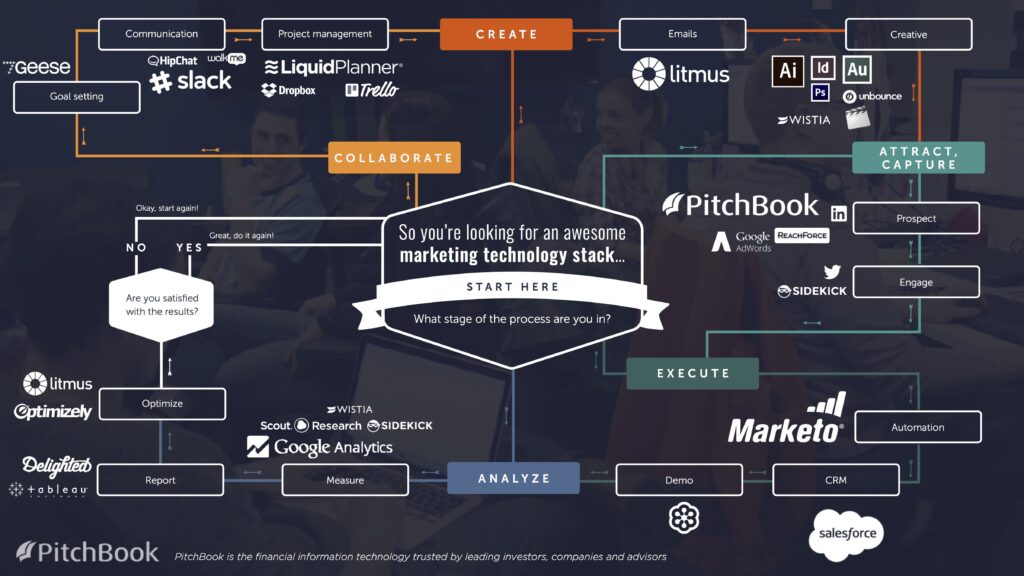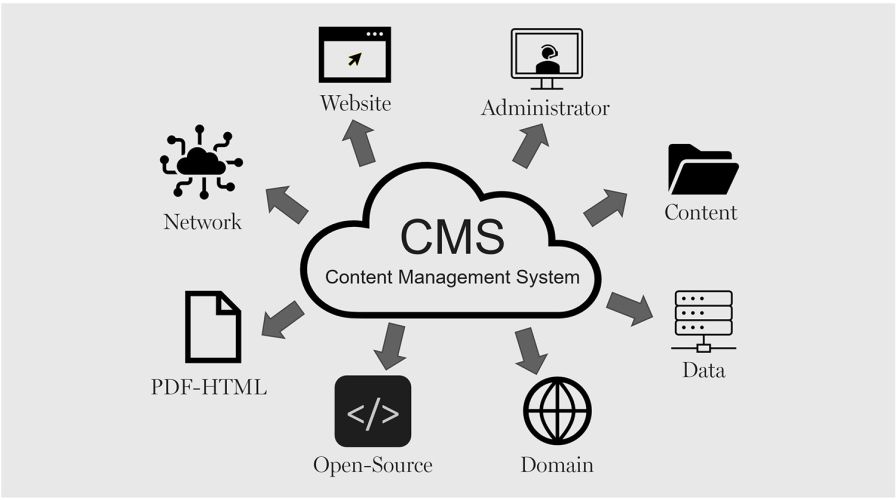Marketing technology: The marketing landscape has undergone a metamorphosis in recent years. The days of relying solely on intuition and guesswork are fading into a bygone era. Today’s data-driven marketing environment demands a sophisticated arsenal of tools – enter marketing technology, or Marketing technology.

Marketing technology encompasses a vast ecosystem of software applications and platforms designed to streamline workflows, optimize marketing campaigns, and unlock deeper customer insights. This article delves into the numerous benefits Marketing technology offers, exploring how it empowers marketers to achieve success in a fiercely competitive and dynamic environment.
Conquering the Data Deluge: From Chaos to Clarity
Marketers are constantly bombarded with a tidal wave of data, encompassing website analytics, customer demographics, social media engagement metrics, and campaign performance indicators. Traditionally, managing this data deluge could be a herculean task, hindering productivity and obscuring valuable insights. This is where Marketing technology steps in as a game-changer.
Data Management Platforms (DMPs), Customer Data Platforms (CDPs), and Customer Relationship Management (CRM) platforms play a pivotal role. These tools act as centralized hubs, meticulously storing and organizing marketing data in a readily accessible format.
Benefits of Data Management with Marketing technology:
- Cloud-Based Storage: Securely store vast quantities of data in the cloud, eliminating the need for physical servers and facilitating seamless remote access for teams working across geographical boundaries.
- Data Integration: Effortlessly connect your marketing data with other business tools like sales software or customer service platforms, fostering a holistic view of customer interactions across the entire customer journey.
- Automated Data Sharing: Streamline collaboration by allowing teams to effortlessly share data insights across departments, breaking down silos and fostering a data-driven culture within the organization.
- Advanced Analytics: Leverage built-in analytical tools to identify trends, patterns, and customer behavior. Uncover hidden gems within your data to inform strategic decision-making.
By leveraging marketing technology for data management, marketers can transition from wrestling with complex spreadsheets to extracting actionable insights that fuel successful marketing campaigns.
Unveiling the Customer: A 360-Degree View
Understanding your target audience on a granular level is the cornerstone of any successful marketing campaign. Marketing technology empowers marketers to gather, analyze, and interpret customer data with unparalleled precision, uncovering valuable insights that were previously hidden in the shadows.
Marketing technology Tools for Audience Insights:

- Customer Relationship Management (CRM) Platforms: CRMs provide a comprehensive view of customer interactions, purchase history, and preferences. Analyze past interactions to predict future customer behavior and personalize marketing outreach.
- Customer Data Platforms (CDPs): CDPs act as data unifiers, consolidating customer data from various sources (website behavior, social media interactions, email engagement) to offer a 360-degree view of individual customers. Gain a deeper understanding of their needs, wants, and pain points.
- Social Listening Tools: Monitor social media conversations in real-time to understand customer sentiment, brand perception, and emerging trends. Identify brand advocates and potential areas for improvement based on customer feedback.
These tools empower marketers to:
- Create Targeted Audience Segments: Tailor messaging and campaigns to specific demographics, interests, and purchase behaviors. This laser-focused approach ensures your marketing efforts resonate deeply with your target audience.
- Generate Insightful Reports: Gain a deeper understanding of customer journeys and pain points through comprehensive data reports. Identify areas where customer experience can be improved and personalize marketing efforts accordingly.
- Identify Customer Trends and Patterns: Leverage data-driven insights to predict future customer behavior and inform product development. Stay ahead of the curve by anticipating customer needs and evolving alongside them.
With a comprehensive understanding of their audience, marketers can create targeted campaigns that resonate deeply with their customers, fostering brand loyalty and driving conversions.
Optimizing Campaigns: From Insights to Impact

Marketing technology isn’t just about gathering and analyzing data; it’s about harnessing its power to optimize marketing campaigns for maximum impact. Marketers can utilize marketing technology tools to meticulously track campaign performance across various channels (social media, email marketing, search engine marketing), allowing them to identify what’s working and what needs improvement.
Campaign Optimization with Marketing technology:
- Marketing Automation Platforms: Automate repetitive tasks like email marketing campaigns and social media publishing, freeing up valuable time for strategic planning and creative brainstorming. Focus on high-impact activities that drive the needle forward.
- A/B Testing Tools: Test different variations of email subject lines, landing page designs, and ad copy to identify the most effective versions. Optimize each element of your campaign for maximum conversions.
- Analytics Dashboards: Gain real-time insights into campaign performance metrics like website traffic, lead generation, and conversion rates. Make data-driven decisions to continuously refine your campaigns and maximize ROI.
By analyzing campaign data with marketing technology tools, marketers can:
- Identify areas for improvement: Pinpoint weaknesses in existing campaigns and develop data-driven strategies to address them, ensuring continuous improvement and optimal performance.
- Optimize ad spend: Allocate resources more efficiently by focusing on channels and tactics that deliver the highest return on investment (ROI). Stretch your marketing budget further and maximize the impact of your campaigns.
- Personalize the customer experience: Deliver targeted content, promotions, and recommendations based on individual customer preferences and purchase history. Create a more engaging and relevant customer experience that fosters brand loyalty and repeat business.
Marketing technology empowers marketers to make data-driven decisions, ensuring campaigns are constantly evolving and delivering optimal results.





